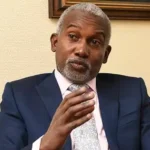Since I wrote that biography, I have had to struggle to understand some of the deep insights and historical dynamics he communicated to me then as my mentor and teacher and as a technocrat, academic and policy practitioner in government. Yet, since I became a permanent secretary, the lessons of that mentorship have suddenly become clearer to me. For example, I now understand why, as a staunch conceptual worker with deep knowledge of the real world, he rejected executive positions in government. For him, such appointments require too much “trade-offs” that undercut one’s principles and reputation, and vitiate the true self. Of course, Aboyade recognised that wielding political power would have made a whole lot of difference in the attempt of his generation to institute fundamental changes in the policy making framework of the Nigerian state, yet he drew back. The cost of a political life was too daunting for him.
Professor Aboyade lived in a period in history when Nigeria was seriously searching for the right mix of policies, ideas and methodologies to chart a path to national greatness. It became imperative, as a matter of national urgency, to constitute a storm troop of academic, technocratic and managerial elites to chart the right course for a postcolonial state already compromised by the colonial geometry of power. Thus, Aboyade found himself in the enviable intellectual cum policy circle made up of the likes of Yakubu Gowon, Olusegun Obasanjo, Pius Okigbo, Wole Soyinka, Ukpabi Asika, Akin Mabogunje, Ali Akilu, Adebayo Adedeji, Allison Ayida, Sam Aluko, Bolanle Awe, Claude Ake, Billy Dudley, Ayodele Awojobi, Phillip Asiodu, Ahmed Joda, Clement Isong, Sunday Awoniyi, Jibril Aminu, Olikoye Ransome Kuti, Michael Omolayole, Ibrahim Dasuki, Gamaliel Onosode, Christopher Kolade, Ibrahim Damchida and so on. Their unenviable task was to translate the vision of independence into a solid administrative/policy programme that would alleviate the existential horror of the colonial situation in Nigeria, and give Nigerians the true sense of independence.
Aboyade’s life and ideals intersected the many challenges of the development agenda and the policy ambivalence that attended it. In other words, when we focus on the career of this mercurial economist and administrator, we encounter what Nigeria could have used its generational capital to achieve and what it missed in terms of a heroic push into a deserving national future. As Claude Ake rightly observed, “Here was a man who epitomised all the things we professed to value most: phenomenal learning and brilliance, patriotism, unwavering commitment to public service and the public interest, abiding faith in the potentialities of Nigeria and stoical acceptance of the effort necessary to realize them”. Yet, here was a hero who eventually died lonely in his struggle to achieve the synthesis of “knowledge, power and responsibility”.
“A hero”, according to Romain Rolland, “is the one who does what he can. The others do not”. Professor Aboyade’s confrontation with the intense policy environment in the 70s critically outline for us the difficulties which constitute the burden of national progress against which Nigeria’s leadership must strive if it would ever hope to escape remaining in perpetual transition. In the process of policy planning, he had to mediate between the demands of politics, ideology and the imperative of sound economics.
However, policy practice almost always suffered the consequences of the tension. For instance, there were two serious challenges to the trajectory of policy practice for the technocrats during Aboyade’s intervention. The first, obviously, is the notorious policy-implementation gap occasioned by the difference between the demands of policymaking, the expediencies of politics and the implementation capability readiness of the public service constrained by a limiting old public administration business model which demands a paradigm shift that is underpinned by deep-seated culture change and developmental industrial relations. The second challenge derives from the dominance of the recurring narrow economic perspective on policy issue with scant sensitivity for the inter- and multi-disciplinary reality required by policy management through inter-ministerial and sectoral synergy, joint project design as well as the economies of scale needed to revise the pervasive silo mentality and territorial protection by agencies which ultimately circumscribe policy outcomes. By the time the formulation of the third national development plan began, the Aboyade-induced discipline in policy and planning management had already collapsed under the weight of militarism and oil boom.
Yet, a leader like Aboyade must surely have been born for a time like this. Robert Louis Stevenson wittily captures the circumstances under which he worked and something of his reaction: “When the torrent sweeps a man against a boulder, you must expect him to scream, and you need not be surprised if the scream is sometimes a theory”. In spite of the uncertain interplay of policy analysis, expert advice, realpolitik, implementation and outcomes in which he operated, Aboyade consistently project his hope and optimism of a sound development agenda through a conceptual and theoretical analysis of policy and planning disciplined by empiricism. This was manifested, mostly, in his envisioning of the second national development plan around a core of national objectives and strategy that aligned resources and investment to specified development outcomes though seriously undermined by a misplaced confidence in the viability of a state-led development paradigm.
As his own unique revision of the narrow economic vision of policy in government, Aboyade established the Development Policy Centre (DPC), Ibadan, which is a structural representation of a multidisciplinary matrix he was advocating for policy research and analysis to backstop the development process. Its objective is to synthesize a sociology of development from the backdrop of policy, business, culture, value, institution, development communication, research and science and technology. It was a joint venture conceptualized with like minds and partners like Mabogunje from the academics, Omolayole from industry, Ayida from the civil service, Vincent Maduka from engineering, Bimpe Aboyade from development communication/documentation research, Alhaji Umaru Ndanusa, from the business community and from the international community, Bax Nomvete from South Africa as well as Joe Abbey from Ghana.
He took his development idea a step further by linking national development with grassroots mobilization. This led to his collaboration, with Prof. Akin Mabogunje, on the Optimum Community (OPTICOM) development approach at Awe, Oyo State. OPTICOM was meant to make a point about the role of government as a galvanizer of development. With it, Aboyade makes the critical point that it is not only what the individual does in the society that drives development, but what the government enables the individuals to achieve for themselves and their society.
With the OPTICOM initiative, Aboyade equally brought the elite down to the level of the masses, and thus rupture the hiatus between the elites and the masses. In retrospect, we can say that Aboyade made a spirited effort to live up to the ideals that defined and inspired the uncompromised in his generation. Whether he succeeds or not is for posterity to judge. Prof. Aboyade came into elitehood with such a deep awareness of its sacred responsibility. He joined the public service with a unique strength of character, an unwavering commitment to the nation and to scholarship characterised by an intellectual symbiosis between what Chief Simeon Adebo called “academic knowledge and the practical workings of a democratic system”. Essentially, Aboyade was an elite without being elitist.
We however get on a different turf in terms of whether the nation recognizes and cultivates her heroes, dead or alive. Ask Ake. Ask Soyinka. Ask Aboyade. For Claude Ake, the paradox of Nigeria is that it needs heroes, and yearns for them; yet, it fails to acknowledge their existence and continually derails their efforts. Wole Soyinka delivers a blunter judgement on the death of Aboyade: “Nigeria kills us slowly; one by one, but surely. If Oje had given less of himself to a thankless nation, he would be alive today.”
In spite of all these summation, Professor Ojetunji Aboyade eventually died, on that fateful 31st of December, 1994, with a smile on his face. Like a prophet who had fulfilled his calling. His mission was to bring Nigeria to the acknowledgment of her historic destiny, and to point her in that direction without the benefit of wielding political power. Heroes can only do that much. The onus of responsibility lies with the nation who values them to then take up the gauntlet and run with the ideas, projections, paradigms, and possibilities even at the risk of failing. The difference between a nation that succeeds and the one that fails, however, is that readiness to deploy heroic ideas and ideals and, with political will, follow them through. Has the nation taken the first step in deploying her heroes and heroic ideas towards building a great Nigeria? I suggest we look to the education system and our institutions for an answer. By rebuilding our institutions to become value-based institutions leveraging global benchmarks, Nigeria can begin to chart a path to what is possible in terms of rehabilitating the Nigerian Project. Aboyade was a product of an institution—the university—and he gave his best.
It is enough for me that I knew this man and was able to gain privileged entry into his amazing and intriguing world. I consider it as one of my tasks in life and part of my service to the Nigerian nation to continually highlight the significance of heroes of the Nigerian Project. That was the essence of the biography. If I had the opportunity to revisit his epitaph, I won’t hesitate to write:
Here lies a simple man, but a patriot and public servant, who attempted to wrest the albatross from around the neck of his country. The frontiers he suggested still lie untrampled; his beacon is still indicating a path to follow.
By Dr. Tunji Olaopa, Federal Permanent Secretary, Abuja. [email protected]
 Join Daily Trust WhatsApp Community For Quick Access To News and Happenings Around You.
Join Daily Trust WhatsApp Community For Quick Access To News and Happenings Around You.


